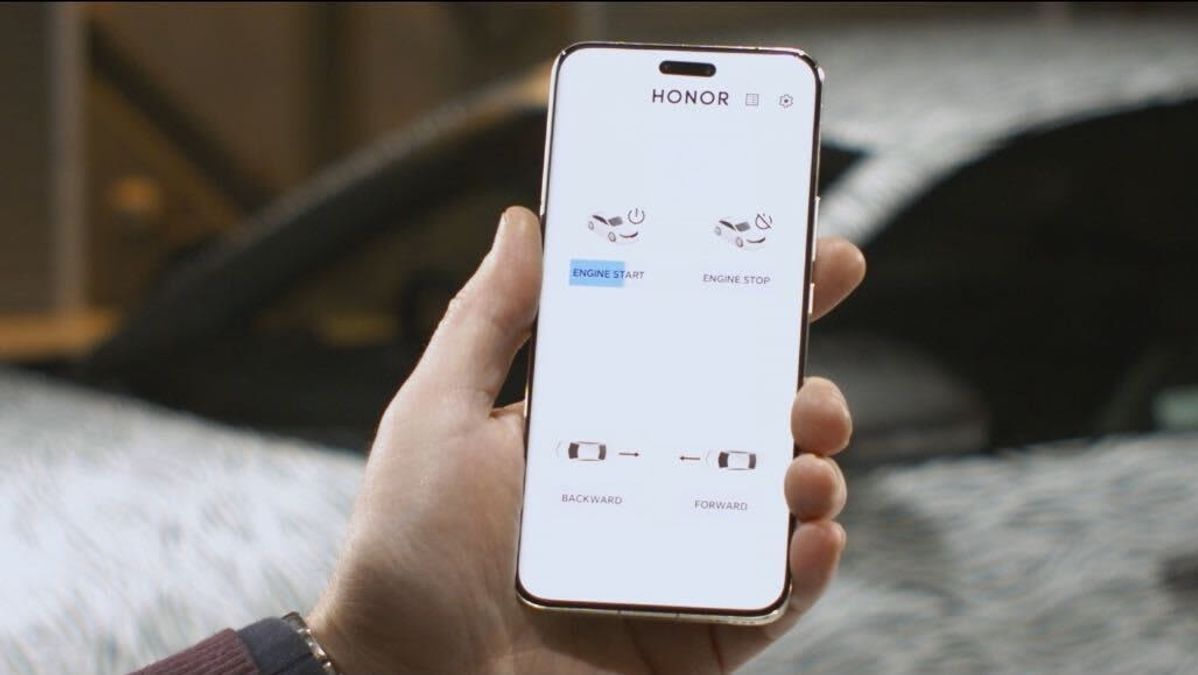
Imagine sitting behind the wheel, ready for the day’s journey, but instead of reaching for the keys, you simply gaze at a screen. This scene, once confined to the realms of science fiction, edged closer to reality at the Mobile World Congress in Barcelona, Spain, where Honor, the Chinese tech giant, unveiled a groundbreaking technology. Through its Magic 6 Pro device, Honor introduced a feature that lets users control a car with nothing but their eyes. This pioneering use of eye-tracking technology and artificial intelligence marks a significant leap forward in the blending of automotive and smartphone innovation.
Revolutionizing Control
The Magic 6 Pro’s eye-tracking capability is not just about starting the engine or adjusting the mirrors; it’s about reimagining the interaction between humans and machines. Utilizing the phone’s selfie cameras, the device can track the user’s gaze, translating it into commands that control the car. This capability, demonstrated effectively during the congress, showcases a future where the boundaries between user intention and device action blur, offering a glimpse into a world of enhanced convenience and efficiency. The technology, while still in its nascent stages, hints at a future where our cars understand us, quite literally, at a glance.
A Glimpse into the Future
While the eye-controlled car technology garners headlines, Honor’s ambitions extend beyond automotive innovation. The company also introduced a concept chatbot based on Meta’s Llama2 AI, aiming to simplify user interaction with technology on a broader scale. This chatbot, designed to assist with various tasks, reflects Honor’s vision of a future where artificial intelligence serves as an extension of human intent, streamlining our interactions with the digital world. However, as with any technology in its early stages, questions about feasibility, safety, and privacy abound, challenging Honor to navigate these concerns as it moves towards commercialization.
Challenging the Status Quo
Since its inception as a Huawei spin-off in 2020, Honor has been on a mission to redefine its place in the global smartphone market. Currently ranked as the fourth-largest smartphone brand in China, the company’s foray into advanced AI features, such as eye-tracking technology, signals its intent to capture a larger share of the premium smartphone segment. Yet, the road ahead is fraught with challenges, including stiff competition and the need to convince consumers of the practicality and safety of such innovations. Honor’s journey reflects a broader trend in the tech industry, where companies are increasingly seeking to differentiate themselves through unique, often experimental, technologies.
In a world where the pace of innovation continues to accelerate, Honor’s bold step into eye-controlled automotive technology serves as both a testament to human ingenuity and a reminder of the challenges that lie ahead. As we stand on the brink of a new era in human-machine interaction, it remains to be seen how these technologies will reshape our lives. But one thing is clear: the future, much like Honor’s vision, is looking straight back at us, inviting us to imagine the possibilities.
